The Greatest Games of All Time: Chrono Trigger
We induct SquareSoft's classic RPG Chrono Trigger into the Greatest Games of All Time.
The Original Time Trotters
Chrono Trigger
Platform: Super NES | Genre: Role-Playing GamePublisher: Squaresoft | Developer: Squaresoft | Released: 1995
As the 16-bit era waned and the world looked to the 3D graphics and CD storage of the next generation of consoles, who would've thought the era's heaviest hitter would release arguably its finest work to date on one of those very systems about to enter obsolescence? That's precisely what happened when role-playing titan SquareSoft delivered Chrono Trigger--an entirely original Super NES role-playing game of incredibly high quality--just days before the historic September 1995 launch of the PlayStation. Though the impact of Sony's entry into the video game market is still being felt today, Chrono Trigger's charming personality and top-notch gameplay kept many RPG fans clinging to their Super NESs months after the PlayStation came onto the scene.
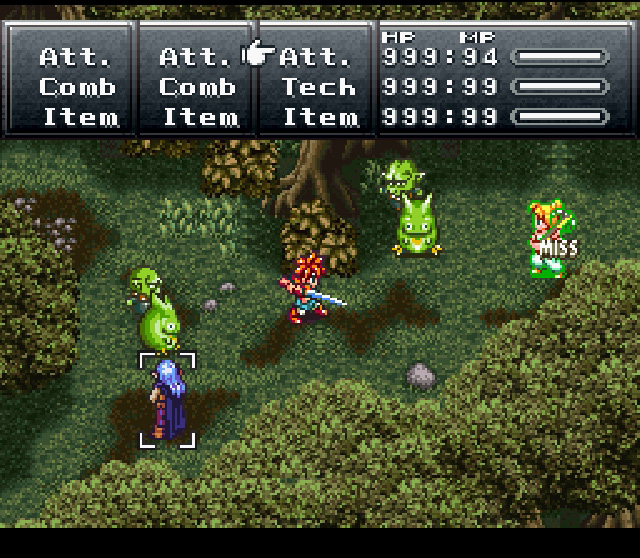
Based on the enormity of Chrono Trigger's development pedigree, it's a wonder the game even came close to matching RPG fans' wild expectations. The project was helmed jointly by Hironobu Sakaguchi and Yuji Horii, respectively the creators and overseers of the Final Fantasy and Dragon Quest series (and if you don't know what those are, well, just quit reading now). Those two names alone assured every RPG fan in the know would look forward to Chrono Trigger with a quickened pulse.
But that wasn't nearly the end of the game's development "dream team," as it came to be called. Dragon Ball creator and longtime Dragon Quest character designer Akira Toriyama threw his artistic expertise into the ring, and famed Final Fantasy composer Nobuo Uematsu contributed to the game's splendid score. Even the lesser known members of the team went on to make names for themselves, such as writer Masato Kato and revered composer Yasunori Mitsuda, both of whom helped create Xenogears and its spiritual successor, the Xenosaga series.
Chrono Trigger's epic adventure put you in the middle of a valiant effort to save the world. Sounds like old hat for an RPG, right? But the game's sublimely rendered storyline spanned not just continents but epochs, as you visited and revisited the same locations in time periods hundreds, thousands, even millions of years apart. Events were woven into the storyline such that your actions in one time period had a direct and gratifying effect on circumstances in a later period. And the storyline had a natural flow. You didn't start out with power over time itself at your command; in fact, you didn't even start out planning to save the world. Rather, you were yanked into the game's larger-than-life events just by being an innocent bystander, and every time you discovered a new ability or were thrust into a new era, it was by the seat of your pants. You got the feeling you and your cohorts were being dragged along by the storyline's crazy goings on, but in true RPG fashion, you got the chance to rise to the occasion and prove your valor anyway.
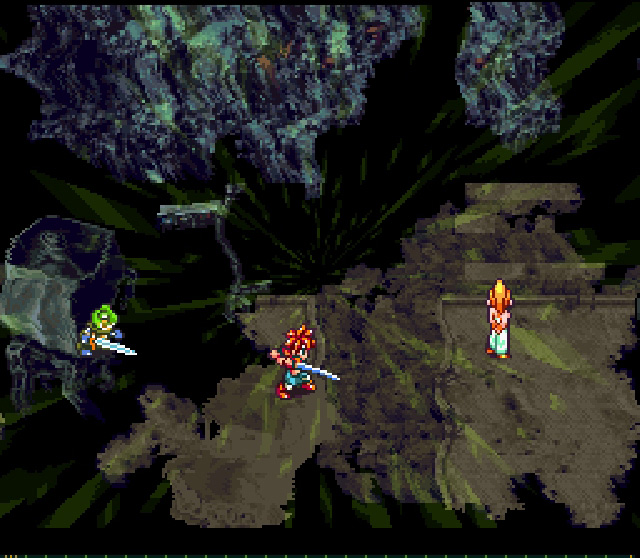
At the outset, you took control of Crono, a spunky redheaded kid with little to say but a big heart all the same. Over the course of your adventure, you collected a diverse cast of characters from every time period, including Crono's present-day friends, princess Marle and Lucca the inventor; the futuristic tin-can Robo; Frog, the valorous, amphibious knight; and even the dark wizard Magus, who started out as the bad guy but turned out to be simply misunderstood. Ultimately you were fighting against Lavos, a malevolent alien parasite that had perverted the future and begun to suck the life from the planet, dooming the world to a horrible dystopian fate. As you progressed, the game played with the "silent protagonist" concept--which has become de rigueur in so many games since--to immerse you more fully in the game. Crono himself never spoke, and the other characters occasionally made light of this fact--but they certainly gabbed among themselves enough to make up for your main character's dramatic shortcomings.
Besides, Crono was the type to let his sword do all the talking. Though Square's RPGs had been cutting party size consistently--first five characters in Final Fantasy IV, then four in Final Fantasy VI, and finally a scant three in Chrono Trigger--there were plenty of offensive and defensive options available to your trio of fighters. In lieu of a vanilla magic system, you had a "tech" system that encompassed pure magical spells, physical special attacks, and hybrids of the two. The best part was that each of the seven playable characters could team up in tandem or even in triplicate to perform double techs and triple techs, compounding the number of available special attacks and sending your offensive power skyward. Some of Chrono Trigger's boss battles could drag on seemingly without end, so you needed all that power to get through some of the toughest fights.
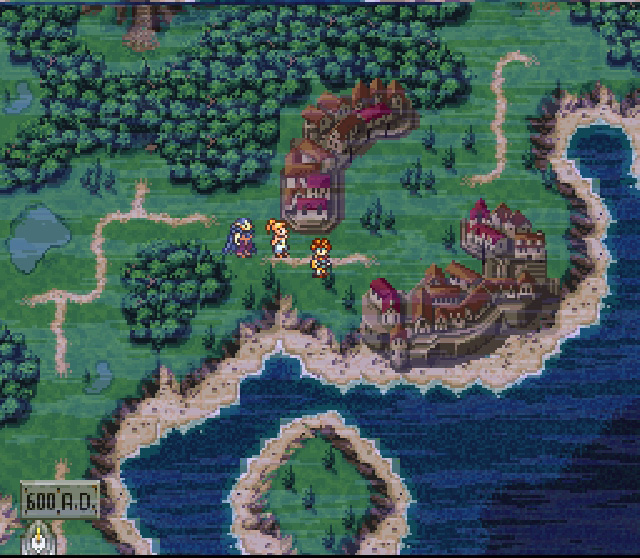
Then there were the endings...all dozen of them. Chrono Trigger did the multiple-endings thing before multiple endings were cool, man. There was, of course, the "real" ending in which you saved the world, got the girl, and floated off into the sunset clinging to a balloon (and then there were a couple of variations on this theme). But one of the most interesting things about Chrono Trigger was that, since you were navigating so many places and time periods, you had a multitude of opportunities to "beat" the game, even with many of the plot's most important events yet to take place! This could potentially leave a character-in-distress in limbo, for instance, or leave another character in the wrong time period. In short, finishing the game early made for a host of bizarre or amusing alternate endings that were utterly different from the final ending and all worth viewing in their own right. Of course, any committed player considered these mock endings to be mere diversions, as you had to play through to the climactic final battle to get the closure only the full resolution could provide.
Chrono Trigger was a class act from every conceivable angle. It had dense, rewarding RPG gameplay; a memorable and endearing cast of characters; a complex storyline; vibrant, expressive graphics; and one of the most cherished game soundtracks in history. The game was widely hailed as an instant classic, and really, how many 16-bit Japanese RPGs can claim such unlikely characters as Doom cocreators John Romero and Tom Hall among their staunchest fans? Chrono Trigger was later released on the PlayStation in a standalone package and then in the Final Fantasy Chronicles collection, though the cartridge original remains the definitive version. But whatever format you have access to, anyone who has an interest in quality gaming owes it to themselves to play Chrono Trigger. -- Brad Shoemaker
Got a news tip or want to contact us directly? Email news@gamespot.com
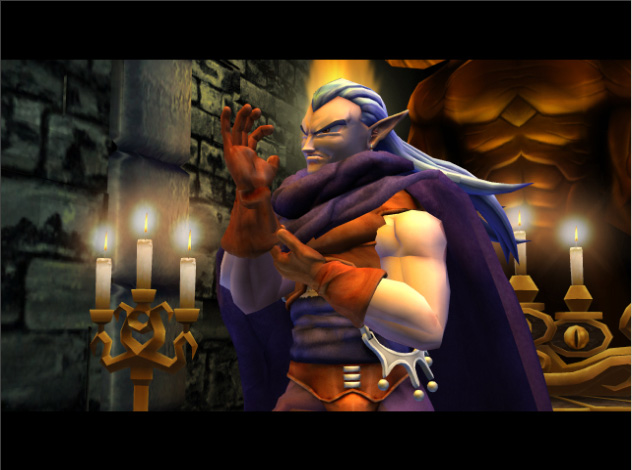
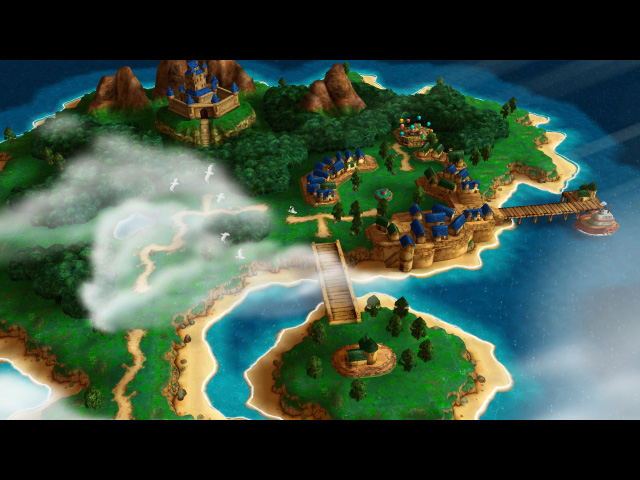
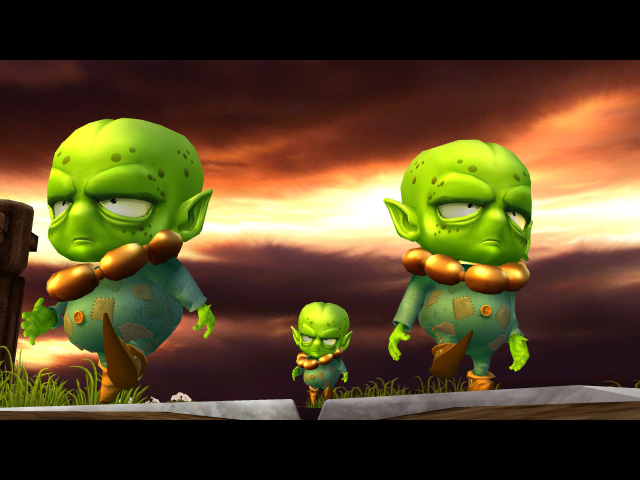
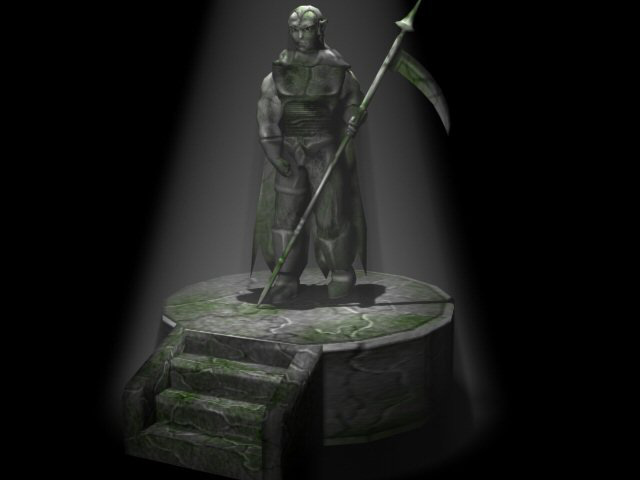
Join the conversation